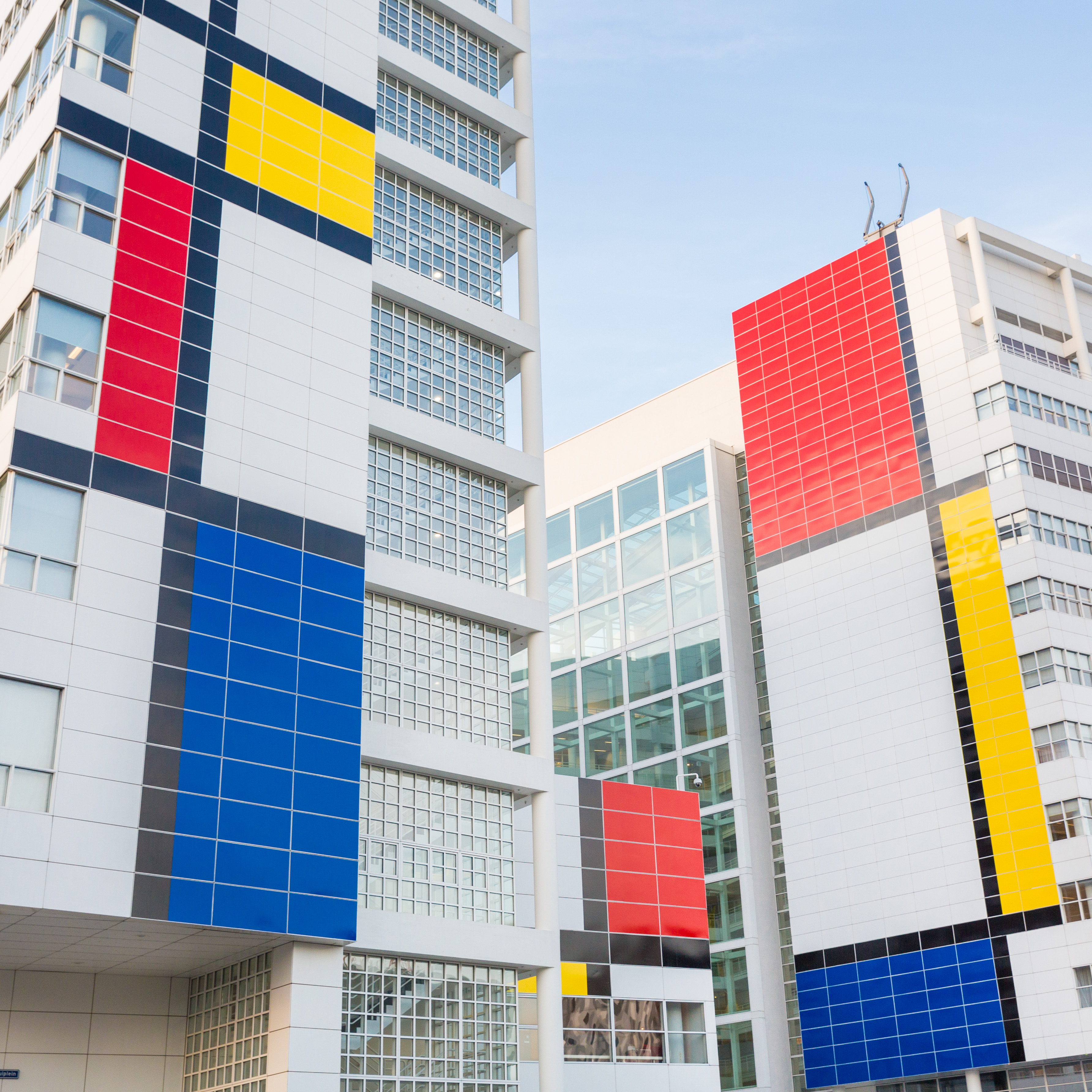
The Hague is celebrating 100 years of De Stijl art movement in 2017, and its first effort comes in the form of the “Mondrianization” of its City Hall.
As part of a year-long program, titled “Mondrian to Dutch Design,” the city of the Hague will cover a number of its prominent buildings with adhesive plastic rectangles in black, white, blue, yellow, and red, to simulate Piet Mondrian’s signature and revolutionary geometric painting style.
Mondrian decoration on the City Hall of the Hague. Photo courtesy the Hague.
More of the city’s buildings will be adorned with similar homages in the next few weeks, according to a statement from the city.
The adaptation of Mondrian’s canvases to large-scale public art installations was designed by Madje Vollaers and Pascal Zwart, the brains behind the Rotterdam-based interdisciplinary design studio Studio Vollaerszwart.
The “Mondrianization” in progress. Photo courtesy the Hague.
The Dutch Modernist movement De Stijl (‘The Style’) was founded in 1917 in Amsterdam by the artists Theo van Doesburg and Piet Mondrian.
Originally a publication of the same name created by Van Doesburg, the movement developed a “neo-plasticism” style, which came to mean an emphasis on simple, abstract, geometric forms, basic shapes, and primary colors or non-color (i.e. black and white).
The City Hall in The Hague with its facade decorated with what Dutch officials describe as “the largest Mondrian painting in the world.” Photo JERRY LAMPEN/AFP/Getty Images.
The Gemeente Museum in The Hague, across town from the City Hall, holds the world’s largest collection of Mondrian works, more than 300. It includes Victory Boogie Woogie, painted from 1942 to 1944, the artist’s final work, left unfinished.
The museum will open its doors for free to the public on Sunday, February 12, in honor of the beginning of the year of “Mondrian to Dutch Design.”